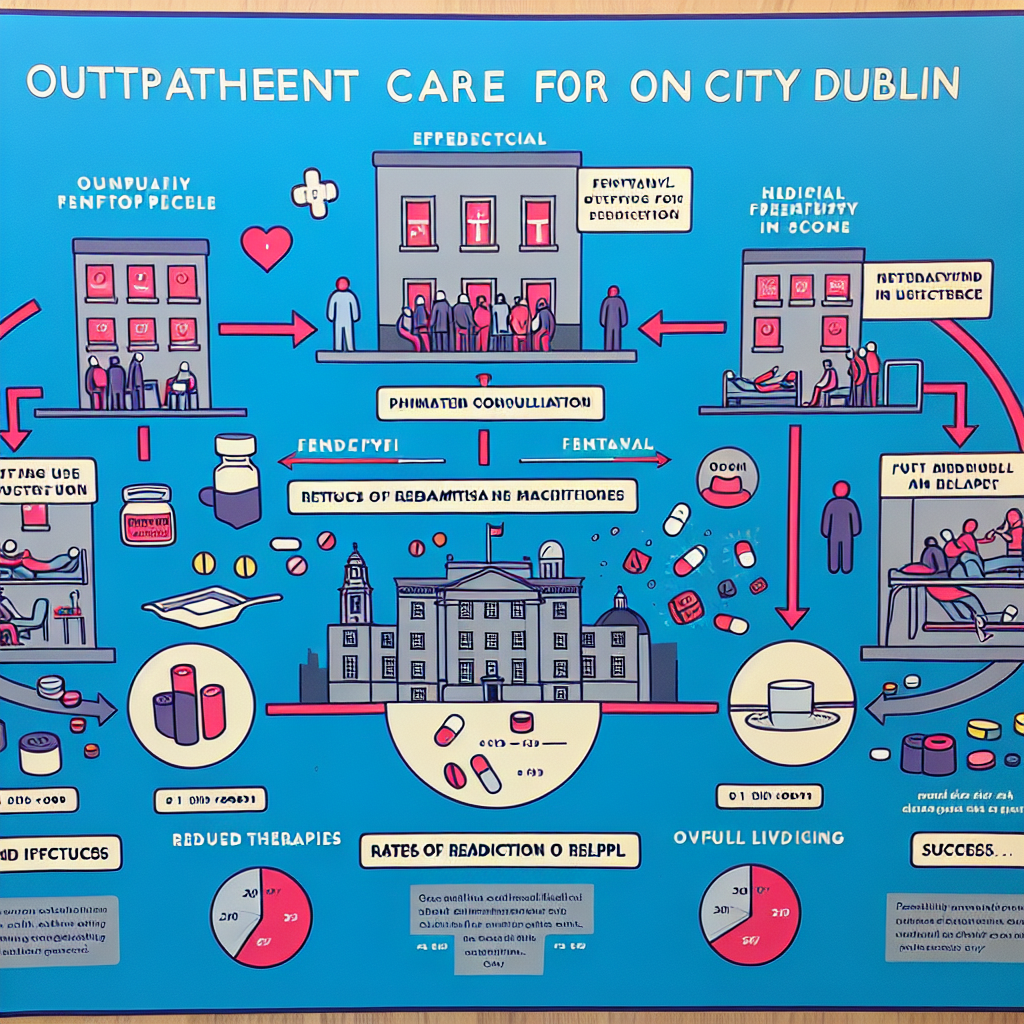-
Table of Contents

“Empowering Recovery Through Wholeness: A Holistic Path to Overcoming Fentanyl Addiction”
Introduction
Holistic approaches to fentanyl addiction recovery emphasize treating the individual as a whole, addressing not only the physical aspects of addiction but also the emotional, mental, and spiritual dimensions. These methods integrate traditional medical treatments with complementary therapies such as acupuncture, yoga, meditation, nutritional counseling, and psychotherapy. By fostering a balanced lifestyle and promoting overall well-being, holistic approaches aim to support long-term recovery and prevent relapse, recognizing that addiction is a multifaceted issue requiring comprehensive care.
Integrating Mindfulness Practices in Fentanyl Addiction Recovery
In the journey of fentanyl addiction recovery, integrating mindfulness practices can serve as a powerful tool to foster healing and resilience. Fentanyl, a potent synthetic opioid, has been at the center of the opioid crisis, leading to devastating consequences for individuals and communities alike. Traditional treatment methods, while effective for many, often fall short in addressing the multifaceted nature of addiction. This is where holistic approaches, particularly mindfulness practices, come into play, offering a comprehensive path to recovery that nurtures both the mind and body.
Mindfulness, the practice of being fully present and engaged in the moment, can significantly enhance the recovery process. It encourages individuals to observe their thoughts and feelings without judgment, fostering a deeper understanding of their internal experiences. This heightened awareness can be particularly beneficial for those recovering from fentanyl addiction, as it helps them recognize and manage triggers, cravings, and emotional distress. By cultivating a mindful approach, individuals can develop healthier coping mechanisms, reducing the likelihood of relapse.
One of the key benefits of mindfulness in addiction recovery is its ability to reduce stress and anxiety. Fentanyl addiction often leaves individuals in a state of heightened stress, which can perpetuate the cycle of substance use. Mindfulness practices, such as meditation and deep breathing exercises, activate the body’s relaxation response, lowering cortisol levels and promoting a sense of calm. This physiological shift not only alleviates stress but also enhances emotional regulation, enabling individuals to respond to challenges with greater clarity and composure.
Moreover, mindfulness fosters a sense of self-compassion, which is crucial for those grappling with the shame and guilt often associated with addiction. Through practices like loving-kindness meditation, individuals learn to extend compassion towards themselves, recognizing their inherent worth despite their struggles. This shift in perspective can be transformative, empowering individuals to embrace their recovery journey with a renewed sense of hope and determination.
In addition to its emotional benefits, mindfulness can also improve physical well-being. Chronic pain is a common issue among those recovering from opioid addiction, and mindfulness-based interventions have been shown to reduce pain perception and improve pain management. By focusing on the present moment and observing sensations without attachment, individuals can alter their relationship with pain, reducing its impact on their daily lives. This holistic approach not only addresses the physical aspects of recovery but also supports overall health and vitality.
Furthermore, integrating mindfulness into addiction recovery can enhance the effectiveness of other treatment modalities. For instance, combining mindfulness with cognitive-behavioral therapy (CBT) can provide a more robust framework for addressing the cognitive and emotional aspects of addiction. Mindfulness can help individuals become more aware of negative thought patterns and behaviors, making it easier to implement the strategies learned in CBT. This synergistic approach can lead to more sustainable recovery outcomes, as individuals develop a comprehensive toolkit for managing their addiction.
Community support is another vital component of mindfulness-based recovery. Group mindfulness sessions can create a sense of connection and shared experience, reducing feelings of isolation and fostering a supportive recovery environment. These communal practices can also provide accountability and encouragement, helping individuals stay committed to their mindfulness routines and recovery goals.
In conclusion, integrating mindfulness practices into fentanyl addiction recovery offers a holistic approach that addresses the complex interplay of physical, emotional, and cognitive factors. By fostering self-awareness, reducing stress, enhancing self-compassion, and improving pain management, mindfulness can significantly enhance the recovery process. As individuals embrace these practices, they can cultivate a deeper sense of resilience and well-being, paving the way for a more fulfilling and sustainable recovery journey.
The Role of Nutrition and Exercise in Holistic Fentanyl Addiction Treatment
In the journey toward recovery from fentanyl addiction, a holistic approach that encompasses various aspects of well-being can be particularly effective. Among the many components of such an approach, nutrition and exercise play pivotal roles. These elements not only support physical health but also contribute significantly to mental and emotional stability, which are crucial for long-term recovery.
To begin with, nutrition is a cornerstone of holistic addiction treatment. When individuals are battling fentanyl addiction, their bodies often suffer from malnutrition and deficiencies in essential vitamins and minerals. This is because substance abuse can lead to poor dietary habits and a lack of appetite. By focusing on a balanced diet rich in nutrients, individuals can start to repair the damage done to their bodies. Foods high in antioxidants, such as fruits and vegetables, help to combat oxidative stress and inflammation, which are common in those recovering from addiction. Additionally, proteins and healthy fats are essential for brain health, aiding in the repair of neurotransmitter pathways that may have been disrupted by drug use.
Moreover, proper nutrition can have a profound impact on mental health. Certain nutrients, such as omega-3 fatty acids found in fish, have been shown to improve mood and cognitive function. This is particularly important for those in recovery, as they often face challenges such as depression and anxiety. By incorporating these nutrients into their diet, individuals can experience improved mental clarity and emotional stability, making it easier to cope with the stresses of recovery.
In tandem with nutrition, exercise is another critical component of holistic fentanyl addiction treatment. Physical activity has numerous benefits that extend beyond physical health. Regular exercise has been proven to release endorphins, the body’s natural feel-good chemicals, which can help to alleviate the symptoms of withdrawal and reduce cravings. This natural high can be a powerful tool in combating the urge to relapse.
Furthermore, exercise can serve as a healthy outlet for stress and anxiety, which are common triggers for substance use. Activities such as yoga and meditation not only promote physical fitness but also encourage mindfulness and relaxation. These practices can help individuals develop a greater sense of self-awareness and emotional regulation, which are essential skills for maintaining sobriety.
Additionally, engaging in regular physical activity can help to establish a routine, providing structure and a sense of purpose. This is particularly beneficial for those in recovery, as it can help to fill the void left by the absence of substance use. By setting and achieving fitness goals, individuals can build self-esteem and confidence, further reinforcing their commitment to a drug-free lifestyle.
It is also worth noting that the social aspect of exercise can be incredibly valuable. Participating in group activities or fitness classes can provide a sense of community and support, which is often crucial for those in recovery. Building connections with others who share similar goals can foster a sense of belonging and reduce feelings of isolation.
In conclusion, the integration of nutrition and exercise into a holistic approach to fentanyl addiction recovery offers a comprehensive strategy for healing. By addressing both the physical and mental aspects of well-being, individuals can create a strong foundation for lasting recovery. Through balanced nutrition, regular physical activity, and the support of a community, those battling fentanyl addiction can find hope and empowerment on their journey to a healthier, drug-free life.
Q&A
1. **Question:** What are some holistic therapies used in fentanyl addiction recovery?
**Answer:** Some holistic therapies used in fentanyl addiction recovery include acupuncture, yoga, meditation, nutritional therapy, and art therapy.
2. **Question:** How does meditation help in the recovery process from fentanyl addiction?
**Answer:** Meditation helps in the recovery process from fentanyl addiction by reducing stress, improving emotional regulation, enhancing self-awareness, and promoting a sense of inner peace, which can aid in managing cravings and preventing relapse.
Conclusion
Holistic approaches to fentanyl addiction recovery emphasize treating the whole person rather than just the addiction. These methods integrate physical, emotional, mental, and spiritual health to promote comprehensive healing. Techniques such as mindfulness, acupuncture, yoga, nutritional therapy, and counseling are often employed alongside traditional medical treatments. By addressing underlying issues and fostering overall well-being, holistic approaches aim to reduce relapse rates and support long-term recovery.



